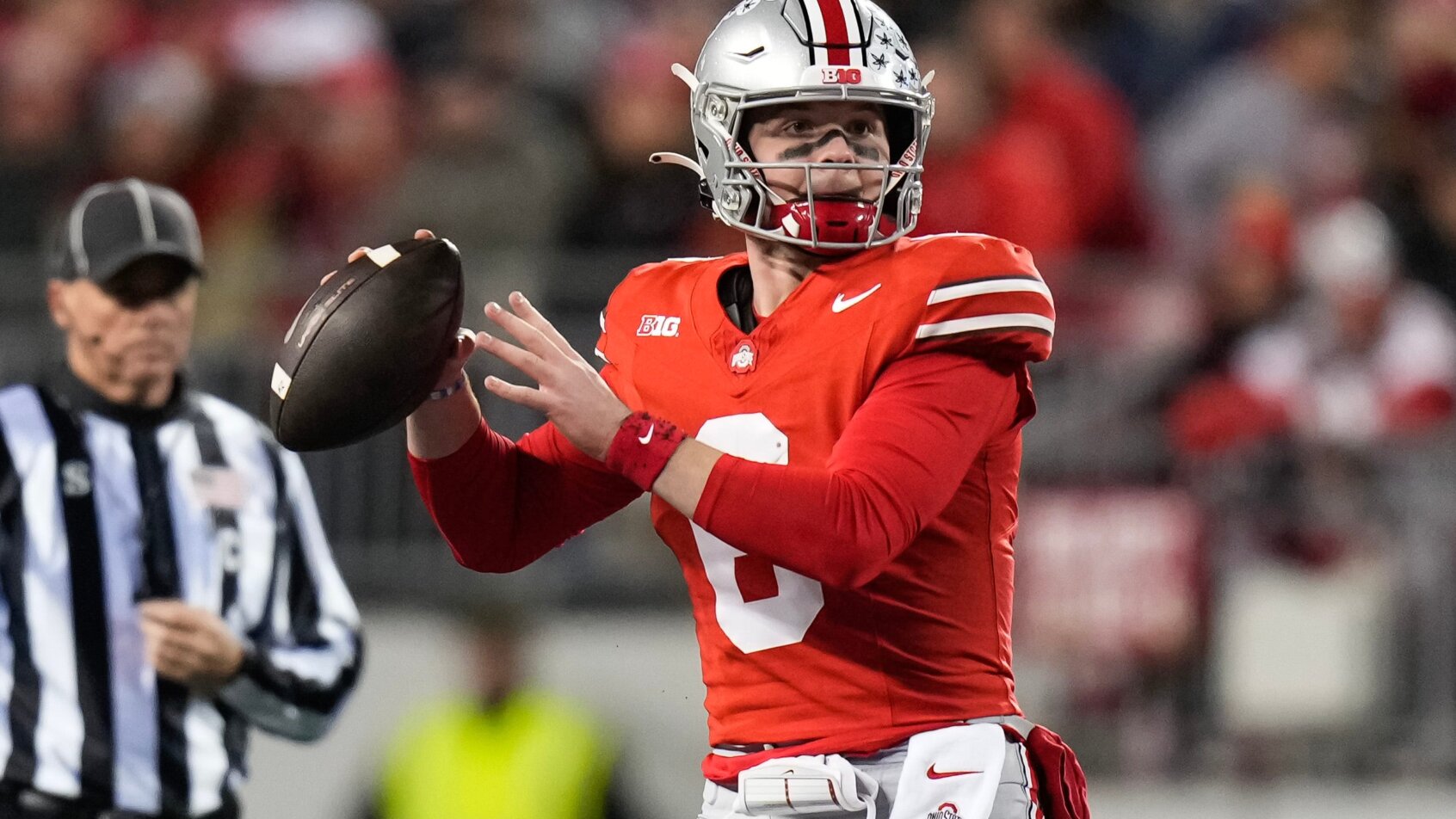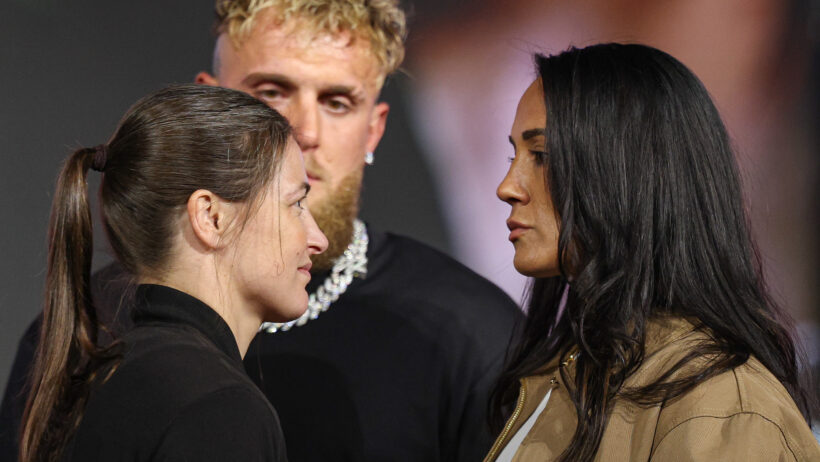Ohio Officially Bans College Player Prop Bets
By Robert Linnehan in Sports Betting News
Updated: January 7, 2025 at 5:45 pm ESTPublished:

- Ohio has banned all player-specific prop bets for college sports
- Ohio Casino Control Commission Executive Director Matthew Schuler released his decision today
- Ohio Gov. Mike DeWine (R) and NCAA President Charlie Baker made the request last month
The days of betting on the latest Ohio Buckeye star wide receiver to surpass a set amount of yards in a game are over.
Ohio Casino Control Commission Executive Director Matthew Schuler approved Gov. Mike DeWine (R) and NCAA President Charlie Baker’s request to prohibit bets on college player props in the state.
The prohibition will go into effect immediately and will be reflected in Ohio’s official sports betting catalogue.
- BETMGM SPORTSBOOK
USE CODE SBD1500 & GET $1,500 BACK IN BONUS BETS
- BET365 SPORTSBOOK
BET $5 & GET $150 IN BONUS BETS WITH CODE DIME365
- FANATICS SPORTSBOOK
BET & GET UP TO $1,000 IN BONUS BETS!
- DRAFTKINGS SPORTSBOOK
BET $5 & GET $150 IN BONUS BETS INSTANTLY!
- FANDUEL SPORTSBOOK
BET $5 & GET $150 IF YOUR BET WINS
- CAESARS SPORTSBOOK
USE CODE SBD2DYW & BET $1 TO DOUBLE THE WINNINGS ON YOUR FIRST 10 BETS!
Must be 21+. GAMBLING PROBLEM? Call 1-800-GAMBLER (CO, IL, KS, KY, MD, MI, NC, NJ, OH, PA, TN, VA, VT, WV, WY); (800) 327-5050 or gamblinghelplinema.org (MA); (877) 8-HOPENY (NY); 1-800-NEXT-STEP (AZ); (888) 789-7777 (CT); 1-800-BETS-OFF (IA); 1-800-9-WITH-IT (IN); mdgamblinghelp.org (MD); morethanagame.nc.gov (NC); 1800gambler.net (WV)
College Player Prop Bet Handles Are Small
Schuler ruled that the NCAA’s request showed “good cause” to prohibit bets on college player props. The official request was made after months of discussion and numerous reports of social media threats made to collegiate athletes, according to Gov. DeWine.
“I have determined that good cause supports the NCAA’s request to prohibit player-specific prop bets on intercollegiate athletics competitions because the NCAA’s request will safeguard the integrity of sports gaming and will be in the best interests of the public,” Schuler ruled.
Player-specific prop bets did not account for a large handle total in the state. In 2023, Schuler reported approximately $104,604,320 in bets were made on college player props out of a total of $7.65 billion in placed bets. The college player prop handle only constituted 1.35% of the total sports betting handle in 2023.
The Ohio Casino Control Commission received written comments from eight of Ohio’s sports betting operators that objected to the request.
“Several operators cited their ability to investigate their customers over bullying or harassment of college athletes and to take appropriate actions required by law. Many operators also argued that an out-right ban would drive those in that market to make those bets with illegal operators that have no safeguards in place for customers and are not accountable for complying with Ohio law prohibiting threats to athletes,” Schuler wrote in his decision.
Schuler wrote that there is no evidence that an outright ban on these bets will drive customers to wager with illegal operators. The operators, he said, failed to “provide any factual basis to support this assumption.”
“While some may revert to illegal operations, the vast majority of Ohioans engage only in legal gambling activity. Given the relative small percentage of wagers placed on player specific prop bets, I perceive the risk of a black market boom to be low,” he said.
Following his official decision, the state will prohibit the following:
- Any proposition or “prop” bet on an individual athlete’s performance or statistics participating in a sporting event governed by the NCAA. Only proposition bets based on full team statistical results are permitted.
- Any full team proposition bet on a sporting event governed by the NCAA that, while not based solely on an individual, would on average depend 50% or more on the statistical performance of one or two athletes on the team to determine the outcome. For example, whether Team A will gain over 200 passing yards in a football game would predominantly rely on the quarterback’s yardage, likely over 50% dependence
According to the footnotes of Schuler’s written decision, 25 states in the country prohibit or limit player-specific prop bets on individual college athlete performance.
NCAA Cited Six Concerns Over Prop Bets
In its official request to prohibit the prop bets, the NCAA described six main points of concern over the wagers.
- Harassment of student-athletes by bettors
- The mental health and general well-being of student-athletes
- Player-specific prop bets increase the risk of insider information being solicited to manipulate betting markets
- Player-specific prop bets may entice student-athletes into engaging in sports betting on themselves
- Player-specific prop bets will increase the risk of “spot fixing” or match fixers targeting student-athletes
- Player-specific prop bets offer college students, who are more prone to problem gambling, a mechanism for engaging in micro-betting

Regulatory Writer and Editor
Rob covers all regulatory developments in online gambling. He specializes in US sports betting news along with casino regulation news as one of the most trusted sources in the country.




